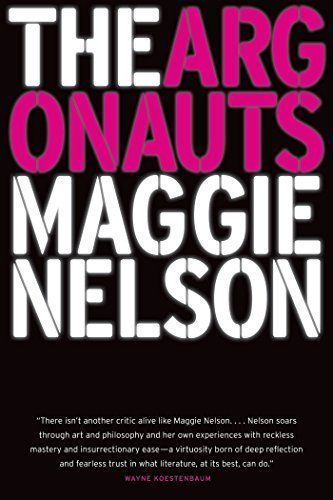
The Argonauts A Memoir
An intrepid voyage out to the frontiers of the latest thinking about love, language, and family.
Maggie Nelson's The Argonauts is a genre-bending memoir, a work of "autotheory" offering fresh, fierce, and timely thinking about desire, identity, and the limitations and possibilities of love and language. At its center is a romance: the story of the author's relationship with the artist Harry Dodge. This story, which includes Nelson's account of falling in love with Dodge, who is fluidly gendered, as well as her journey to and through a pregnancy, offers a firsthand account of the complexities and joys of (queer) family-making.
Writing in the spirit of public intellectuals such as Susan Sontag and Roland Barthes, Nelson binds her personal experience to a rigorous exploration of what iconic theorists have said about sexuality, gender, and the vexed institutions of marriage and child-rearing. Nelson's insistence on radical individual freedom and the value of caretaking becomes the rallying cry of this thoughtful, unabashed, uncompromising book.
Reviews
Sarah E@booksgalore
Sarah Erle@serle
Eli Alvah Huckabee@elijah
the_basis_@jsanders18
Martha F.@marthaq
Jacque@jacque_who
mina nayeri@ladychatbotslover
Kendall McClain@kendallmcclain
Kent Reymark Tocayon@reyreykenny
Rae@raeraerae
Tara@timidwings
erin@urn
Jeannette Ordas@kickpleat
Maddie@maddie
Amy Thibodeau@amythibodeau
Katie Chua@kchua
Kira L@krispyk
Fraser Simons@frasersimons
Francis Buggey@fcbugreads
Donald@riversofeurope
Athena Eloy@athenaeloy
Paige Carter@paigeccarter
Abigail Schreider@abischreider
Grace Emilia Machon@ohhellograce